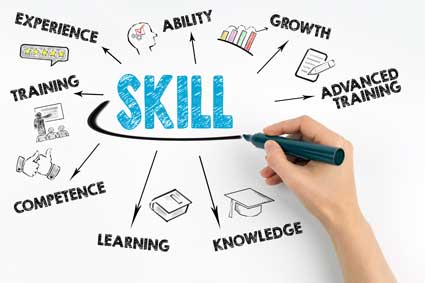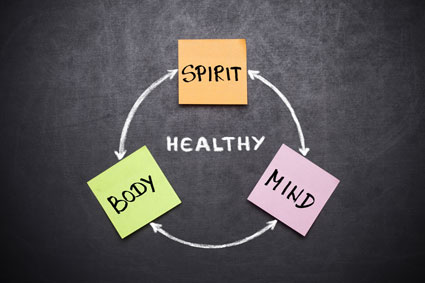Preparing your Voice
Telephone manners start with your voice. Of course it's important to speak distinctly and clearly. But the bigger consideration lies with vocal volume. With the invention of the wireless and cellular telephones, we can have telephone conversations in multiple, public environments rather than being confined to the privacy of our home or office. In the presence of others, keeping your vocal volume low will be appreciated by those around you as well as by the person you're speaking with. To many overhearers, phone conversations in public are an unwelcome noise that while not dangerous, slightly assault the senses. Thus, those who use cell phones in public can minimize their offensiveness to others by keeping a few guidelines in mind. Many of these fall under the umbrella of simple common sense.
Cell Phone Etiquette
As a cell phone user, there are four guidelines that you should never ever engage in. They are as follows.
- Leaving your ringer on in quiet places
At the movies, in a house of worship, or in a concert hall, a ringing cell phone is one surefire way to infuriate people en masse. Don't forget to turn off the ringer. Just leave the phone on vibrate so that you can receive indications of your calls, if it's that important to you.
- Ignoring the people you're with
Taking or making calls in the middle of conversations with friends or relatives sends a clear message that the phone matters more than they do. The person you're with will have little alternative but to think that they are second-best, left to wonder why you're on the phone instead of being with the person you're actually with. This offense is not reduced by signaling to the person you're with to just hang on for a minute.
- Making repeated calls
In public, such as on public transportation, in line at the bank or movie house, or in busy areas such as airports and train stations, keep your calling to a minimum. Making repeated calls one after the other, especially just to pass the time, eventually exasperates even the most tolerant and understanding listener. Keep your calls limited or if you can't do that, move to a more private spot.
- Using offensive language
Some cell phone users become oblivious to those around them while on the phone, feeling free to use obscenities and socially unacceptable speech. Even when the people nearby may try not to listen, they can only ignore vulgarities and offensive comments, such as racist, sexist, or classist, for so long.
Cell phones have changed the way we live our daily lives. With our cell phones, we can get in touch with someone at any time, virtually no matter where we are, and we can always be reachable. We can call ahead when we're stuck in traffic or are otherwise delayed, and meet up with people in unknown places much more easily. In an emergency, they can save lives.
The problem with cell phones comes when we have to listen to someone chattering away in public. This is just another irritant in a stressful world. Their public use invades the space of others, demonstrating lack of awareness that the people around her even exist – an insult in itself.
Cell phone etiquette is situational, like most manners. No matter where you use your cell phone, in nearly all situations it is appropriate to avoid being intrusive – especially in public places.
In public, if you must use your cell phone, speak as quietly as you can. Turn off the ringer and leave it on vibrate, checking your caller ID and allowing calls to go to voicemail when possible. Keep your calls as short as possible, for the longer the call, the greater those around you become irritated as they have no choice but to listen.
In certain places, you should pay more attention to your cell phone usage than you need to in other places. Some places are more sensitive.
When you're on the street, don't shout into your phone. Be careful of other people on a crowded street and make sure you're paying attention when crossing streets. If you're using a headset, be aware that suddenly starting to speak can be jarring for anyone who hasn't noticed your mic. This applies particularly when you're standing on a corner, waiting for the light to change. If you suddenly start talking, the person beside you will think you're talking to them.
When you're in a store and you must use your cell phone for a call, do so privately. Other people get annoyed when they have to listen to you. Make sure you don't slow down the cashier line because you need to phone a friend for advice on a purchase you're about to make.
Cell phone usage in restaurants has become so abused that some require phones be checked at the door. If you are allowed to bring yours in, turn it off and don't make calls at the table. If you need to use your phone, excuse yourself and step outside.
When you're in the car, you shouldn't be using your cell phone. It poses a serious safety risk to yourself and others. The best choice is to pull into a parking area before making a call. Also, calls from the car usually require you raise your vocal volume and speak more loudly than normal, which is annoying for the person on the other end, so keep your calls short. Additionally, if there are other people in the car who will overhear the conversation, let your conversation partner know this.
On an airplane, turn off your cell phone when advised by the flight crew. Don't be that person that insists on talking on the phone while the plane is taxiing down the runway. It's both irritating and dangerous.
On buses and trains, volume is the biggest issue. Keep conversations short and soft. If you can be heard two rows away, turn down your vocal volume. Try to keep your calls limited to those that are really necessary, because people who can hear your call will be extra annoyed if your call could obviously wait. If you commute by train, try to make your calls from the platform before you board or at minimum, use the train car's vestibule area.
General Phone Manners
Placing Calls
In placing calls, your manners begin before the other person even answers – with the number of rings you allow. The polite thing to do is not hang up before at least five or six rings. It's very irritating to run from whatever you're doing to grab a phone call, only to find the caller has already hung up.
When placing calls, there are three things to keep in mind:
- Identify yourself. Unless you're talking with a family member or close friend who knows your voice, give your name. If someone other than the person you're calling answers the phone, use something like, "Hi, this is Marcia Wyatt. May I please speak with Barbara?"
- Ask if it's a good time to talk. If you expect your call to last more than a minute or two, ask if you're interrupting something. If you say something like, "Are you in the middle of something? I can call you back." this shows that you are considerate of their time.
- Keep messages brief. If you want to leave a message for someone who's not available at the moment, keep it short. It's inconsiderate to expect whoever answers to write down a lengthy message, unless it's an emergency.
Double check the number you're calling before dialing, unless you're absolutely certain of the number. When you dial a wrong number, simply apologize. Don't say something like, "What number is this?" Instead, use something like, "I'm so sorry. I must have misdialed. I was trying to reach 541-836-4553." This will prevent you from coming across as annoyed at someone who simply answered the phone. Never hang up without saying anything when you dial a wrong number, as this is a basic discourtesy.
In terms of appropriate times for making calls, the general rule is between 9 am and 9 pm, unless you're certain a friend or relative doesn't mind earlier or later calls. (Note – this is cultural! People in other cultures have different expectations for these times.) Even if people don't go to bed at 9 pm, they may not wish to be disturbed after that hour. If you know people who say or imply that they prefer not to be called at a certain hour, comply with that request. A call at the wrong time is no less disruptive if it comes from a friend.
Invitations by Phone
When you call to invite a friend somewhere, be direct: "Hi Katrina. We're having a few people over on Saturday night to play poker. Can you and Cody come?" With this approach, the other person is free to accept or say, "Oh I'm sorry, but we're busy Saturday," if she'd rather not come. Don't begin your invitation with, "Are you busy on Saturday night?" as this puts the other person on the spot and leads to them feeling forced to attend your event, whether or not they want to.
When responding to an invitation, don't just say, "I'll let you know" unless you also immediately explain: "I'll have to check with Cody to see if he's made other plans" or "We have tickets for a show for that night, but I might be able to exchange them for another showing." Without these explanations, "I'll let you know" sounds like you're waiting for a better invitation. Either way, respond to the invitation within a day or possibly two, and call back with an answer when you said you would.
Using Someone Else's Phone
If you need to place a long-distance call and have no calling card or other personal option available and you must use someone else's phone to make that call, either call collect or give your host enough money to cover the call. If she refuses reimbursement, one option is to discreetly tuck the bills and a small piece of paper with a "Thank you!" under the phone when you leave, if you don't think this would be inappropriate. In any case, keep local and long distance calls on a friend's phone to a minimum.
Answering Calls
When answering the phone, "Hello" remains the most common greeting. Also polite but less personal is "Davis residence", which you can also use when answering the phone at someone else's home.
Knowing what not to do on the phone is quite important. Try to avoid the following:
- Asking "Who is this?" If the caller hasn't observed the common courtesy of stating her name, you can ask politely, "May I ask who's calling?" or "May I tell her who's calling, please?"
- Saying "Wait a minute" and keeping the caller waiting while you run off. If the call comes in at an inconvenient time, it's okay to say, "I'll call you back in a few minutes." Just be sure you honor your promise.
- Letting a very young child answer. Children under six can find it very difficult to understand a message and get it to the right person.
When the call is for someone else, respond with, "If you'll wait a moment, I'll get her." Then find the person immediately and deliver the message. Don't shout, "Brittany, it's for yoo-ou!" If you do have to call loudly for the person, don't forget to cover the mouthpiece first. If the person isn't available, offer to take a message and be sure to write it down. It's an act of courtesy to keep a pad and pen near the phone, as it prevents wasting the caller's time while you look for these items. Repeat the name and number back to the person so be sure you've got it right. Noting the date and hour of the call is also useful.
When someone calls and it's a wrong number, the polite thing to say is, "I'm sorry, you have the wrong number." If the caller asks, "Who is this?" you can respond with, "What number are you calling?" or "Who are you calling?" If the caller wants to argue, which happens sometimes, say something like, "Please understand, there is no Boris here." before hanging up.
Calls in Progress
Once on the phone, try to keep it short. Most people are protective of their time, and it can be quite irritating to speak with someone who takes a long time to get to their point. Even friends with plenty of time on their hands will likely appreciate this. Only in situations where they offer something like, "I'm enjoying catching up so much I could talk all day!" would it be appropriate to talk as much as you like.
Guidelines for good conversation apply to phone calls as much as face-to-face conversations. Speak clearly and avoid shouting. This is important to point out because many people unconsciously raise their vocal volume when on the phone. Don't focus just on yourself, but be sure to ask your conversation partner what she's been doing or about the latest news of friends or relatives. Show interest in the person. As you listen, show that you're listening with a nod or smile in face-to-face conversations, and short responses such as "Mm hmm" "O really!" or "Of course" on the phone.
First Names?
It's not always easy to know whether you should use the first name of someone you've never met in a conversation. It may come across as overly familiar and impolite to assume from the outset that the stranger is comfortable with you using her first name. Use your intuition here. If uncertain, use the person's title (e.g. Dr., Mr., Ms., Mrs., Miss) until invited otherwise.
Be sure not to overuse the person's first name, whether that person be a friend or a stranger. It's odd to begin or end every other statement with the person's first name, and can easily come across as disingenuous, condescending, or artificially friendly.
Call Waiting
Being put on hold because of another call isn't quite as irritating as tolerating a cell phone shouter, but it's close. If you feel insulted when your phonemate asks, "Do you mind if I take this?" you might want to respond with, "Yes, I do mind!" The better response, however, is to say, "Sure, go ahead," then wait. After 90 seconds, it's fine to hang up. When you talk again with that phonemate, try not to demonstrate your annoyance, but rather politely say that you were unable to hold.
When it's your call waiting that signals, apologize to your conversation partner and say you'll immediately return, then quickly explain to the other caller that you have to call them back. Try not to let a conversation start. Your responsibility is to the first caller. That person should never be left on hold for more than 20 seconds, 30 tops.
However, this rule also has some exceptions. Sometimes you're expecting an urgent or long-distance call, perhaps from overseas. In this case, it's fine to tell your conversation partner at the beginning, "I'm waiting for a call from my aunt in Geneva. If she calls, I'll have to get back to you." When she calls, arrange to call your phonemate back at another time – then do so.
Perhaps you're expecting an important call and pick up the ringing phone to find it's someone else. In this case, let the person know: "Hello Monica. I'd love to talk but I may have to interrupt you. I'm waiting for a call from my attorney." When you alert the caller in this way, this prevents them from feeling brushed off if and when that other call comes in.
An alternative to dealing with call waiting is to simply let the call go to voice mail.
Other Interruptions
Sometimes you're on the phone and someone stops by your home. Of course, tell your phonemake that you need to answer the door, then welcome your visitor. If the call is an important one, tell your visitor that you need to finish it. Otherwise, tell your phonemate that you have a visitor and ask if you can call them back in a bit. Then make sure you do.
Technical problems and dropped calls also occur. In this situation, it is the caller's responsibility to call back. If you are the caller, immediately call back and apologize, even though the equipment was at fault: "I'm sorry, I think we somehow got disconnected. We were talking about Lola's dance recital." In the event of excessive static on the line or a bad connection, explain you'd like to call them back and try again.
If you're the call recipient and the call is dropped, stay off the line. But, if the person hasn't called back within a few minutes, try them again. You can use something like, "I'm not sure what happened but I wanted to make sure we didn't have anything else to talk about" so that you can bring the call to a proper close.
Ending Calls
Traditionally, telephone etiquette says that the call originator is also the call terminator. This isn't a hard-and-fast rule, but it can be helpful if a call seems to be dragging on. If you placed the call, you can say something like, "I'll let you go now Irene. I'm glad I was able to reach you! I look forward to seeing you soon. Good-bye."
If you're having difficulty ending a call with a long-winded talker, you may have to simply be firm. At the first conversation pause, you can say, "I'm sorry, I simply must go now." You can use this whether you placed the call or received it, and only when really necessary.
Phone Call Faux Pas
These are telephone errors that are often made by people with otherwise good manners. In a personal call, these are minor missteps. In business calls, they can make you appear unprofessional.
- Talking to someone else. It is only permissible to talk with someone else while you're on the phone if that person's input is needed for the phone call.
- Busying yourself with other things. When you're doing something else while you're on the phone, such as typing, washing dishes, or shuffling papers, this suggests your attention is not with the call.
- Eating. Eating while you're on the phone is impolite, and often crude. It is a major blunder to use a hands-free phone to be on a phone call while you are eating a meal.
- Chewing gum. Many people take offense to having to listen to the smacks of a gum chewer while on the phone with them. It's better to leave your gum until after the conversation.
- Sneezing or coughing into the receiver. Either turn your head away from the receiver or excuse yourself for a moment and put the phone down if you need to sneeze, cough or blow your nose.
- Laying down the receiver with a bang. If you need to lay the receiver down for a moment, do so gently lest you startle your phonemate.
Special Features
Conference Calls
Choose a quiet place to conduct your conference call. If you're having trouble understanding a participant who's ignored this obvious guideline, diplomatically suggest to the group that you reschedule. You can say, "I'm sorry, but it's difficult for me to hear with the noise in the background. Do you mind if we reschedule?"
When not everyone knows each other, each person should introduce him/herself so that everyone else can associate a voice with a name. To reinforce this identification, participants should identify themselves the first few times they speak: "This is Maggie speaking. …" If you aren't sure who's speaking, ask.
Speakerphones
Talking on a speakerphone gives the impression that you're doing something else at the same time. This might be okay with close friends, but others may easily get the impression that you're not paying attention. Also, using the speakerphone often makes the call less clear or easy to hear on the other end, and speakerphone calls can seem less personal.
If you're talking with someone who's using a speakerphone, you can politely ask, "Are you on a speakerphone?" If he doesn't offer to switch the speaker off, you can say something like, "I can hear you well. Would you mind switching to the receiver?" If he doesn't, you can ask if you can talk later, when he can use a regular phone.
Text Messaging
Increasingly popular, billions of text messages are sent annually as more and more people like their fast transmission, instant reception, and low cost.
Text messaging, or texting, is less formal than email and best used for just the briefest and usually most casual messages. In fact however, in some cultures and in some situations, texting is preferable to calling because it is considered less intrusive on the person's daily activities. For example, when you need to contact someone for business purposes in the evening or on the weekend, texting may be preferable to calling so as not to intrude on that person's personal time. Important or serious matters should be handled in text only as a prelude to a phone call. Additionally:
- Use common courtesy: a greeting at the beginning and thank-you at the end.
- Don't assume the recipient is always available to instantly message you back.
- Keep your message short.
- Only ask questions that can be answered briefly
- Pay close attention when selecting the recipient's name from your directory
- If you receive a message clearly by mistake, simply ignore it.
- When you text someone who doesn't have your number in her directory, begin with introducing yourself.
- Whenever possible, acknowledge text messages either by texting back or with a phone call. This is important because simply due to the technological nature of text messages, they are not always actually received. Acknowledging the receipt of a text message lets the sender know that you received her message.
- Don't scroll through your phone's ring tones in public, annoying everyone around you.
Handling Difficult Conversations
Like it or not, we all find ourselves in the midst of difficult conversations from time to time. When that occurs, it is best to draw on your tools for emotional intelligence in dealing with the other person. Here are some tips for that:
- Check the person's emotional state at the beginning of the conversation. Don't ignore the vocal tones. If he seems angry or frustrated at the outset, either you can calm him down and have a productive conversation, or his anger and frustration will likely escalate and the conversation will be less productive or worse, the relationship itself will be harmed. If you sense that he is in a difficult emotional state early on in the conversation and your efforts to change that are not effective, you may be best to reschedule for another time. Don't point out the other person's difficult emotional state, but say something like, "You know, maybe it would be best if we talk at another time. I have some things to do right now anyway." If he persists, you can say something like, "Actually this isn't a great time for me. I thought it would be but in truth I have a million things to do, and all seem to need doing right now. Would you mind if we talked later? I'm sorry."
- Don't take it personally. Many people make offensive and inflammatory remarks sometimes. They offer insults and their rage grows. When this happens, remember to not take it personally. What this person is saying says more about him than it does about you. When you don't take it personally, you are better able to maintain emotional distance and not get twirled up in the other person's discomfort.
- Check your emotions. Pay attention to the sensations you feel rising within yourself. If you sense anger, frustration or irritation, remind yourself to not take it personally and try to quell those sensations. If this doesn't work, politely end the call or the conversation, suggesting you continue the conversation at another time.
- Listen carefully to try to discern the root of the other person's difficulty. He is frustrated, irritated, or angry about something. Try to listen to what's being said behind the offenses and frustration. Try to identify the root of his issue and address that if you can, in part by identifying with his frustration. People tend to become less articulate as their anger rises, which may mean that it requires you to infer this person's underlying issue. Try to identify his underlying issue if you can, then move forward with something like, "I sense you are frustrated with the length of time the delivery has required. I don't blame you. Your time is valuable and you wouldn't have ordered it if you didn't need it. Let me see what I can do to remedy this situation." Or, in a personal situation, "I seem to be hearing that you're frustrated with me for canceling dinner last night. I totally get that and I'm so sorry. I'd like to make it up to you. Can we…?" If it's not actually about something you did or your company is responsible for having done, if he's actually angry about something else entirely and taking it out on you, with escalating fury, there may be little you can do except end the conversation.
- Always proceed with compassion and empathy for the other person's difficult experience. Try to understand where that person is coming from. She might be hurling insults at you, intended to hurt you and throw you off balance, likely because she feels hurt and thrown off balance. Try to identify with the person's suffering and offer compassion, proceeding with gentleness.
- Stick to the facts. Don't allow the conversation to take detours, as these are often aimed to put you on the defensive. Focus on the main theme, and stick with it.
Ultimately, after all of these efforts, don't let the other person rattle you. Once that happens, your good sense becomes compromised and you're likely to say something you'll wish you hadn't. If the other person is succeeding at getting you upset, politely end the conversation. If you can't end it politely, just end it with something like, "I'm sorry, I've got to go now," and hang up (or walk away, in the case of face-to-face conversations). Good etiquette requires that you consider the well-being of others in your interactions, but it does not require that you sacrifice yourself in that process.

































